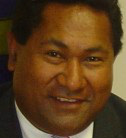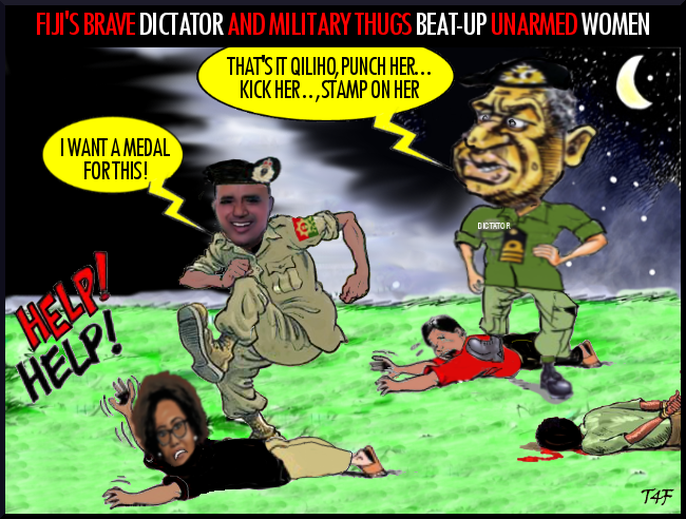 Lealea
Lealea There can be no doubt Fiji and its people have literally been pouring their hearts out and shedding untold tears. This has been due to the loss of their freedom and the abuse of their human rights and dignity since the overthrow of the elected government of PM Qarase in December 2006 by the Dictator Bainimarama. That national outpouring of grief and tears is beginning to abate and tears are slowly drying as they see a glimmer of hope in the upcoming election in September.
Anyone who loves his or her country would want the crying to stop for good and for the nation and its people to reclaim their freedom and political sanity. Indeed, so many of us would love to proclaim the words: "Cry no more my beloved Fiji" in recognition of the hurt and suffering of near 8 years now and the possibility that good days beckon to again flourish as a nation and people.
We all know too well who has been shedding the tears since December 2006 and records abound of how widespread and heart wrenching it has been. Mothers whose sons were mysteriously taken into custody and retrieved dead from the hands of those tasked to uphold the law and protect citizens, shed hurtful tears borne out of the natural attachment to a physical offspring.

"While crying may not be a blockbuster drug, but the latest research suggests it's highly effective at healing, and that it improves the mood of 88.8 per cent of weepers, with only 8.4 per cent feeling worse." Perhaps therein lie an antidote to the long suffering of Fiji and its people since Dictator Bainimarama's coup. I'm not saying crying and suffering has stopped because it surely has not. Instead, people of Fiji have, over time, developed coping mechanisms to shield them from the impact of the suffering. They have found temporary relief in their own spirituality, families and networks of colleagues and friends which in turn encourage them to recover and contemplate the future. They have come to internalise their cries into yearnings to confront the evil that has suppressed them all these years. Again research into crying "supports the so-called recovery theory, that emotional tears, and their contents, may be a way of getting the body back in balance after a stressful event."
This does offer some hope for Fiji and its people and I for one very much look forward to its effects in the months ahead, especially the confidence and ability to seize any opportunity to turn threats to their advantage.
The 17 September election provides that opportunity and the heart truly lifts when one looks at the enthusiasm and passion in which the parties are approaching it, even under the most trying, unfair and uneven of political circumstances. For me, it is as if the tears of sorrow, pain and agony are being transformed into tears of joy, hope and determination. It is a truly welcome change and marks an innate strength in the human spirit to recover from a human inflicted suffering. Worse, when that suffering is perpetrated by the organs of the State and, in many cases for Fijians, by their own race.
The emotional energy that has fanned the tears of suffering, grief and sorrow has slowly been redirected at reclaiming freedom and liberty, which in turn, has ignited passion and enthusiasm among those fighting the forces of evil and darkness now arrayed in front of us in the form of Dictator Bainimarama and his Fiji First Party.
To him and his treasonist bunch, let us in unison, shout out that Fiji and its people shall "Cry No More". And if we are to cry it will be the cry of joy and victory when Fiji awakes from its enforced slumber inflicted by evil forces, to retake its rightful place in the community of civilised nations, where dignity human rights, democracy and respect for each other is again held paramount and sacrosanct.


